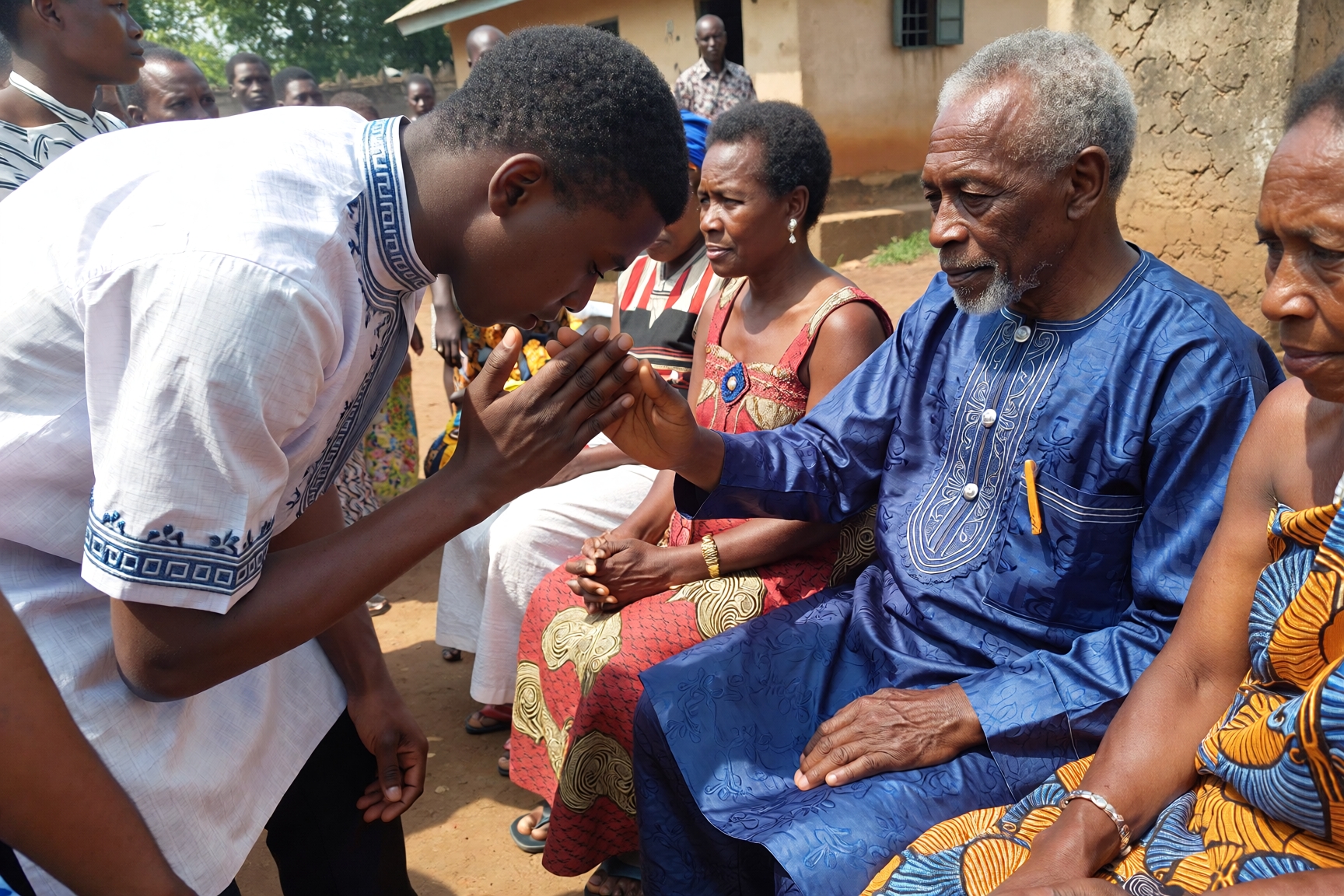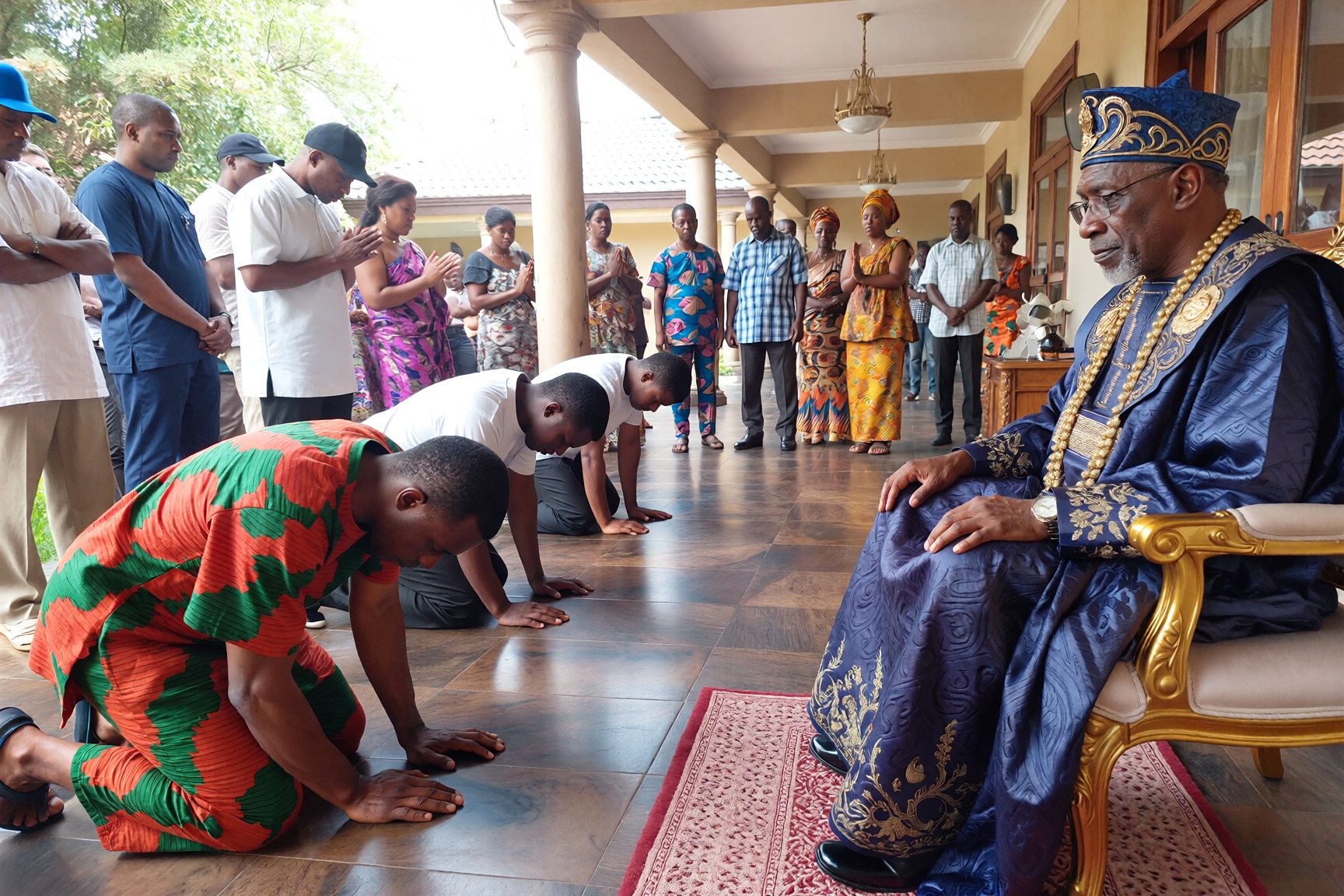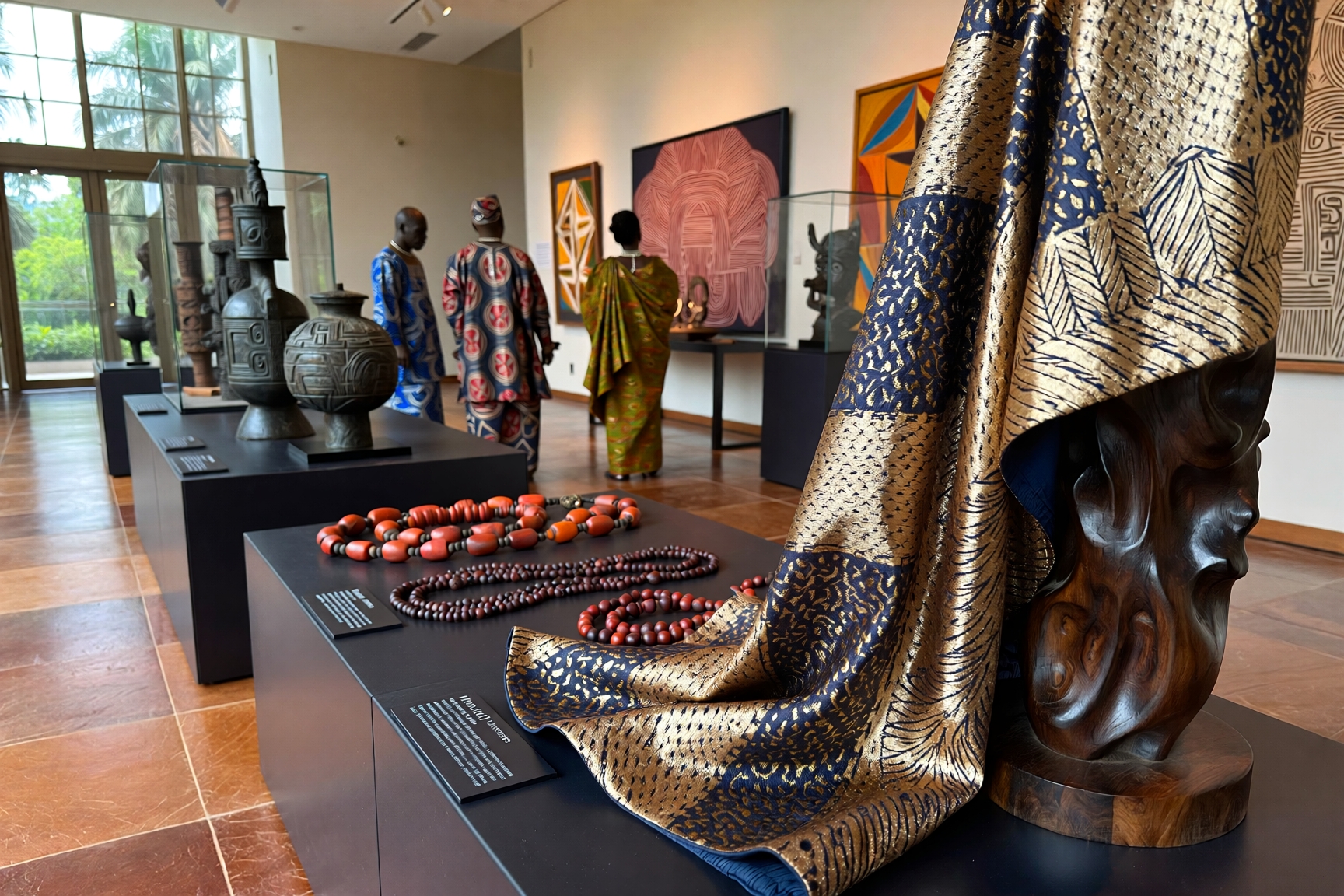After months of careful research and years of following West African economic trends (both professionally and out of sheer fascination), I’ve put together what I hope will be a genuinely helpful exploration of Nigeria’s economic reality. The question “Is Nigeria a rich or poor country?” isn’t quite as straightforward as it might seem, and I’m rather excited to unpack it with you.
You see, Nigeria presents one of the most fascinating economic paradoxes on the African continent. On one hand, it’s Africa’s largest economy by GDP. On the other, millions of its citizens live below the poverty line. It’s rather like having a tremendously large cake but struggling to slice it fairly amongst all the guests at the party. This apparent contradiction has puzzled economists, confused policymakers, and left many wondering where Nigeria truly stands in the global economic hierarchy.
Throughout this article, we’ll explore the nuances of Nigeria’s economic position, compare it with other nations, and most importantly, understand what these statistics actually mean for everyday Nigerians. I promise to keep things conversational and grounded in reality, because economic data can be frightfully dull if presented without context!
Understanding Nigeria’s Economic Position in Global Context
Let me start with something that surprised me during my research: Nigeria’s GDP stands at approximately $440 billion, making it the largest economy in Africa. That’s genuinely impressive! The country produces roughly 1.8 million barrels of oil per day (when production isn’t disrupted), has a booming entertainment industry that’s captured global attention, and a tech sector that’s earned Lagos the nickname “Africa’s Silicon Valley.”
But here’s where it gets complicated.
When you divide that substantial GDP amongst Nigeria’s population of over 220 million people, the per capita income tells a rather different story. According to the National Bureau of Statistics, Nigeria’s GDP per capita hovers around $2,000 annually. For comparison, that’s about what you’d spend on a modest holiday abroad, except it represents an entire year’s economic output per person.
I remember speaking with a colleague in Lagos who put it beautifully: “We’re a rich country with poor people.” That phrase has stuck with me because it captures the essence of Nigeria’s economic contradiction. The wealth exists, rather like water in a pipe, but the distribution system has some serious leaks.
The informal economy employs roughly 80% of Nigeria’s workforce, according to World Bank data. This means most Nigerians work without formal contracts, stable incomes, or social protections. It’s a precarious existence that doesn’t show up neatly in GDP statistics but profoundly affects lived experiences.
Is Nigeria Among the World’s Poorest Nations?
Right, let’s address this directly because I’ve seen some alarming headlines that paint Nigeria with rather broad brushstrokes. Nigeria is not among the world’s poorest countries by GDP, but poverty rates tell a more sobering story.
The multidimensional poverty index reveals that approximately 63% of Nigerians (roughly 133 million people) are multidimensionally poor. That statistic comes from Nigeria’s own National Bureau of Statistics and it’s one that keeps me up at night, frankly. Multidimensional poverty doesn’t just look at income; it considers education, health, and living standards. It’s a more complete picture of genuine hardship.
When international organisations rank countries by GDP per capita, Nigeria typically falls into the “lower-middle-income” category. Countries genuinely classified as the world’s poorest (places like Burundi, South Sudan, or the Central African Republic) have GDP per capita figures below $500. Nigeria’s figure, whilst certainly not comfortable, sits considerably higher.
However (and this is crucial), having more wealth on paper doesn’t automatically translate to better living conditions for citizens. Income inequality in Nigeria is severe. The richest 10% of the population controls a disproportionate share of the nation’s wealth, whilst the bottom 50% scrambles for the remainder. It’s rather like a football match where one team has fifteen players and the other has only six.
The infrastructure challenges compound these issues. Inconsistent electricity supply, underfunded healthcare systems, and educational facilities that desperately need investment all contribute to a quality of life that doesn’t match the country’s GDP ranking. I’ve visited Nigerian cities where million-dollar properties sit opposite neighbourhoods without reliable water supply. The contrast is jarring.

Africa’s Poorest Nations: Where Does Nigeria Rank?
Let’s put Nigeria’s position into proper continental context, because understanding where Nigeria stands requires knowing who its neighbours are economically speaking.
Africa’s poorest countries (by GDP per capita) include Burundi, South Sudan, Somalia, the Central African Republic, Mozambique, Malawi, Niger, Liberia, Madagascar, and the Democratic Republic of Congo. These nations face extraordinary challenges: ongoing conflicts, limited natural resources, political instability, or recovery from devastating civil wars. Nigeria, despite its considerable challenges, isn’t in this category.
In fact, Nigeria ranks somewhere in the middle of African nations economically. Countries like Botswana, Mauritius, Seychelles, and South Africa have significantly higher GDP per capita figures. But Nigeria outperforms many others, particularly those in the Sahel region and certain parts of East Africa.
What’s particularly interesting (and somewhat frustrating for development economists) is that Nigeria has resources that should theoretically prevent extreme poverty. The country has:
- Vast oil and gas reserves
- Significant agricultural potential (it’s blessed with diverse climate zones)
- A young, entrepreneurial population
- Growing technological innovation hubs
- Substantial diaspora remittances flowing back home
The challenge isn’t resource scarcity; it’s resource management and distribution. I’ve studied numerous development reports, and they consistently point to governance issues, corruption, and infrastructure deficits as the primary obstacles preventing Nigeria’s potential from translating into widespread prosperity.
One thing that struck me during my research was how resilient Nigerians are despite these challenges. The informal economy thrives because people find creative solutions to systemic problems. Street vendors, small-scale manufacturers, and service providers create wealth from virtually nothing. It’s genuinely inspiring, though it shouldn’t be necessary to this extent.
Is Nigeria a Rich or Poor Country? The Direct Answer
Here’s the straightforward answer you’ve been waiting for: Nigeria is simultaneously rich and poor, depending on which metrics you examine and whose experience you prioritise.
Nigeria is rich in:
- Natural resources (oil, gas, solid minerals)
- Total economic output (largest GDP in Africa)
- Human capital (over 220 million people, many highly educated)
- Cultural exports (Nollywood, Afrobeats music)
- Agricultural potential
- Entrepreneurial spirit
Nigeria is poor in:
- Per capita income distribution
- Infrastructure quality
- Poverty reduction outcomes
- Access to essential services (healthcare, education, electricity)
- Income equality
- Social safety nets
The country has the 27th largest economy globally by GDP but ranks much lower (around 140th-150th) in GDP per capita and human development indices. Related entities that help explain this paradox include income inequality (measured by the Gini coefficient), unemployment rates (particularly youth unemployment above 30%), inflation rates that erode purchasing power, and the massive informal economy that operates outside formal economic measurements.
Think of Nigeria rather like a person who owns a large house but struggles to pay for heating and maintenance. The asset exists, the potential is undeniable, but the practical day-to-day experience doesn’t match the theoretical value. Until wealth distribution improves, infrastructure develops, and governance strengthens, Nigeria will remain stuck in this uncomfortable middle ground.
Comparative Analysis: Global Wealth Rankings
When we examine global wealth rankings, perspective matters enormously. The United States government recognises different economic classifications, and Nigeria typically appears in lower-middle-income brackets.
The world’s richest countries by GDP per capita include Luxembourg ($135,000+), Ireland, Switzerland, Norway, and Singapore. These nations have populations under 10 million (except Germany and the United Kingdom, which also rank highly). Their wealth per person is mind-boggling compared to Nigeria’s $2,000.
But here’s what these rankings often miss: purchasing power parity (PPP). A dollar stretches differently in Lagos than in London. When you adjust for PPP, Nigeria’s economic position improves somewhat, though it still doesn’t crack the top 100 globally.
What I find particularly telling is Nigeria’s trajectory compared to similarly positioned countries three decades ago. Places like Malaysia, Indonesia, and Vietnam have made remarkable strides in poverty reduction whilst Nigeria has struggled. The difference? Consistent policy implementation, infrastructure investment, and inclusive economic growth strategies.
China’s transformation from a poor nation to the world’s second-largest economy happened within living memory. India has lifted hundreds of millions from poverty in recent decades. These examples prove that large populations aren’t inherently obstacles to development; they can be assets when properly managed. Nigeria has all the ingredients for similar success; it’s the recipe execution that needs work.
I should mention that wealth rankings focusing solely on GDP miss crucial quality-of-life factors. Bhutan famously uses “Gross National Happiness” as a metric. Norway tops various prosperity indices not just because of wealth but because that wealth translates into excellent public services, low crime rates, and high life satisfaction. Nigeria’s challenge isn’t just creating wealth but ensuring it improves ordinary citizens’ lives.
Key Economic Indicators Comparison
| Country | GDP (Billions USD) | GDP Per Capita (USD) | Poverty Rate (%) | Life Expectancy (Years) | Unemployment Rate (%) |
|---|---|---|---|---|---|
| Nigeria | 440 | 2,000 | 63 | 55 | 33 |
| Ghana | 75 | 2,400 | 24 | 64 | 14 |
| South Africa | 380 | 6,400 | 55 | 64 | 35 |
| Kenya | 115 | 2,200 | 36 | 67 | 12 |
| Egypt | 395 | 3,900 | 30 | 72 | 11 |
| United States | 27,000 | 80,000 | 12 | 79 | 4 |
This table reveals Nigeria’s peculiar position amongst comparable nations. Despite having Africa’s largest economy by total GDP, its per capita income barely exceeds Kenya’s and falls below Ghana’s. The poverty rate is alarmingly high (highest in this comparison), and life expectancy remains concerningly low. These figures collectively demonstrate why Nigeria feels poor to its citizens despite appearing wealthy on continental GDP rankings.
Comparing Nigeria and Ghana’s Economic Positions
The Nigeria-Ghana comparison deserves its own section because these neighbouring West African nations are frequently measured against each other, rather like siblings constantly compared by well-meaning relatives.
Is Ghana richer than Nigeria? Not by total GDP. Nigeria’s economy is roughly six times larger than Ghana’s $75 billion GDP. However, when you examine per capita income, Ghana edges ahead with approximately $2,400 per person compared to Nigeria’s $2,000. That $400 difference might seem modest, but it represents a 20% higher average income.
More importantly, Ghana’s poverty rate sits around 24%, whilst Nigeria’s exceeds 60%. That’s a massive quality-of-life difference. I’ve travelled to both countries, and the contrast in public services is noticeable. Ghana’s electricity supply is considerably more reliable (though far from perfect). Their roads, particularly around Accra, show evidence of consistent maintenance. Public hospitals, whilst still under-resourced, function more predictably.
Why does Ghana perform better on these metrics despite having fewer natural resources than Nigeria? Several factors contribute:
- Political stability – Ghana has experienced relatively peaceful democratic transitions since 1992
- Better governance indicators – Lower corruption perception rankings
- More consistent economic policies – Less dramatic policy reversals between administrations
- Smaller scale – With 33 million people versus Nigeria’s 220 million, service delivery is simpler
- Focused development – Strategic investments in cocoa, gold, and increasingly oil
However, Nigeria’s sheer size means its economic potential dwarfs Ghana’s. If Nigeria could achieve Ghana’s governance standards whilst leveraging its massive population and resources, it would be unstoppable economically. That’s the frustrating part for those of us who follow Nigerian development; the ingredients for success are all present.
I should note that both countries face significant challenges. Neither has cracked the code for rapid, inclusive development. But Ghana’s steadier progress over recent decades demonstrates that better governance outcomes are achievable within the West African context. Nigeria could learn from its smaller neighbour without diminishing its own considerable achievements.
Practical Steps Towards Understanding and Improving Nigeria’s Economic Reality
If you’re trying to make sense of Nigeria’s economic position, whether for academic purposes, investment decisions, or personal understanding, here’s a practical numbered approach:
- Look beyond GDP headlines – Total GDP measures economic size, not citizen welfare. Always check per capita figures and poverty rates for a complete picture.
- Consider multidimensional poverty data – The National Bureau of Statistics publishes detailed reports showing poverty across health, education, and living standards. These provide richer insights than income data alone.
- Track state-level variations – Lagos State’s economy alone would rank it amongst Africa’s top ten countries. Northern states face drastically different challenges. Nigeria isn’t economically homogeneous.
- Monitor informal economy indicators – Since 80% of Nigerians work informally, formal statistics miss huge swathes of economic activity. Street market prices, mobile money transaction volumes, and small business surveys reveal ground-level economic health.
- Follow infrastructure development – Electricity generation capacity, road construction projects, and port efficiency improvements directly impact economic potential. The Federal Ministry of Works provides updates on major projects.
- Watch youth unemployment figures – With over 60% of Nigerians under 25, youth employment trends predict future economic trajectories better than current GDP figures.
- Examine remittance flows – Nigerians abroad send home approximately $20 billion annually, according to World Bank estimates. This money directly alleviates poverty for millions of families and doesn’t always appear in formal GDP calculations.
For policymakers and development practitioners, these steps translate into actionable strategies. Focus on income distribution mechanisms, not just wealth creation. Invest in basic infrastructure that enables economic participation. Create incentives for formal sector employment. Support small and medium enterprises that employ the majority of Nigerians.
I genuinely believe Nigeria’s economic future is bright, but that brightness requires intentional policy choices made consistently over decades. Quick fixes haven’t worked; sustainable development requires patience and commitment.
Wrapping Up: Nigeria’s Complex Economic Reality
So, is Nigeria a rich or poor country? After all this exploration, I hope you’ll agree the answer is refreshingly complex. Nigeria possesses genuine wealth in resources, people, and potential, yet that wealth hasn’t translated into widespread prosperity for its citizens. It’s simultaneously Africa’s economic giant and a nation where most people struggle daily with poverty’s harsh realities.
The path forward requires acknowledging both truths. Nigeria isn’t a hopeless basket case requiring perpetual aid, nor is it a thriving economy that’s simply misunderstood. It’s a nation at a crossroads, with enormous potential that demands better governance, infrastructure investment, and inclusive policies to realise.
What gives me hope is Nigeria’s resilience and creativity. Everywhere you look, Nigerians are solving problems, building businesses, creating art, and refusing to be defined by statistics alone. When governance catches up with citizen ingenuity, Nigeria will be genuinely unstoppable.
For now, measure Nigeria not by where it stands today but by the direction it’s moving. Progress is slow and uneven, frustratingly so, but it exists. Every new business registered, every child educated, every infrastructure project completed moves the needle towards the prosperity Nigeria’s people deserve.
Key Takeaways:
- Nigeria ranks as Africa’s largest economy by total GDP ($440 billion) but performs poorly on per capita income ($2,000) and poverty rates (63%), creating a paradox of national wealth alongside individual poverty.
- Comparing Nigeria with neighbours like Ghana reveals that smaller economies with better governance can deliver superior quality of life outcomes, suggesting Nigeria’s challenge is resource distribution and management rather than resource scarcity.
- Understanding Nigeria’s economic position requires looking beyond single metrics to examine infrastructure quality, informal economy activity, income inequality, and multidimensional poverty indicators that better reflect citizens’ lived experiences.
Frequently Asked Questions About Nigeria’s Economic Status
Is Nigeria a rich or poor country?
Nigeria is a lower-middle-income country with Africa’s largest economy by GDP but high poverty rates affecting over 60% of its population. The nation possesses significant natural resources and economic output, yet struggles with wealth distribution, infrastructure deficits, and governance challenges that prevent most citizens from experiencing prosperity.
Is Nigeria the poorest country in Africa?
No, Nigeria is not Africa’s poorest country by any standard economic measure. Countries like Burundi, South Sudan, the Central African Republic, and Somalia have significantly lower GDP per capita and face more severe economic challenges, often compounded by ongoing conflicts and political instability.
What is Nigeria’s GDP compared to other African nations?
Nigeria’s GDP of approximately $440 billion makes it Africa’s largest economy, surpassing South Africa, Egypt, and Algeria. However, this total economic output doesn’t translate to high individual incomes because Nigeria’s large population of over 220 million people means the wealth is spread thinly across many citizens.
Why do Nigerians feel poor despite Nigeria’s large economy?
Nigerians experience poverty because wealth is unevenly distributed, with the richest 10% controlling disproportionate resources whilst the majority struggles with inadequate infrastructure, unreliable electricity, limited healthcare access, and predominantly informal employment without stable incomes or social protections. Total GDP doesn’t reflect individual living standards when inequality is severe.
Which are the ten poorest countries in Africa?
Africa’s ten poorest countries by GDP per capita are Burundi, South Sudan, Somalia, Central African Republic, Mozambique, Malawi, Niger, Liberia, Madagascar, and the Democratic Republic of Congo. These nations face combinations of conflict, limited infrastructure, political instability, and resource constraints that create severe economic hardship for their populations.
Is Ghana economically better than Nigeria?
Ghana has a higher GDP per capita ($2,400 versus Nigeria’s $2,000) and significantly lower poverty rates (24% versus 63%), suggesting better economic outcomes for average citizens. However, Nigeria’s total economy is six times larger, and Ghana’s smaller population makes service delivery and governance somewhat easier to manage consistently.
What is Nigeria’s main source of wealth?
Oil and gas exports historically provided 90% of Nigeria’s foreign exchange earnings and roughly 60% of government revenue, according to Nigerian National Petroleum Corporation data. However, the economy is diversifying into telecommunications, agriculture, entertainment (Nollywood), and technology sectors that increasingly contribute to economic output and employment.
Who is the richest country in the world currently?
Luxembourg consistently ranks as the world’s richest country by GDP per capita (exceeding $135,000 annually), followed by Ireland, Switzerland, Norway, and Singapore. These nations combine strong financial sectors, strategic geographic positions, effective governance, and relatively small populations that allow wealth to translate into high living standards for citizens.
How does Nigeria’s poverty rate compare internationally?
Nigeria’s 63% multidimensional poverty rate is alarmingly high compared to global and regional averages, exceeding rates in Ghana (24%), Kenya (36%), and Egypt (30%). This places Nigeria amongst countries with the highest poverty concentrations globally despite its substantial total economic output and resource wealth.
Can Nigeria become a developed nation?
Nigeria has the natural resources, human capital, and economic potential to become a developed nation, but achieving this requires decades of consistent governance improvements, infrastructure investment, education expansion, corruption reduction, and inclusive economic policies. Countries like South Korea and Singapore demonstrate that rapid development is possible with sustained commitment to these fundamentals.
What prevents Nigeria from being wealthy?
Corruption, poor infrastructure (particularly electricity), governance failures, income inequality, over-reliance on oil exports, inadequate education and healthcare systems, and the massive informal economy all prevent Nigeria’s potential wealth from benefiting most citizens. According to Transparency International, governance and corruption issues particularly undermine development efforts and resource distribution.
How accurate are Nigeria’s economic statistics?
Nigeria’s economic statistics face measurement challenges because 80% of economic activity occurs in the informal sector that’s difficult to track accurately. The National Bureau of Statistics works to improve data collection, but underground economies, cash-based transactions, and limited statistical infrastructure mean official figures likely underestimate total economic activity whilst potentially missing poverty’s full depth.






